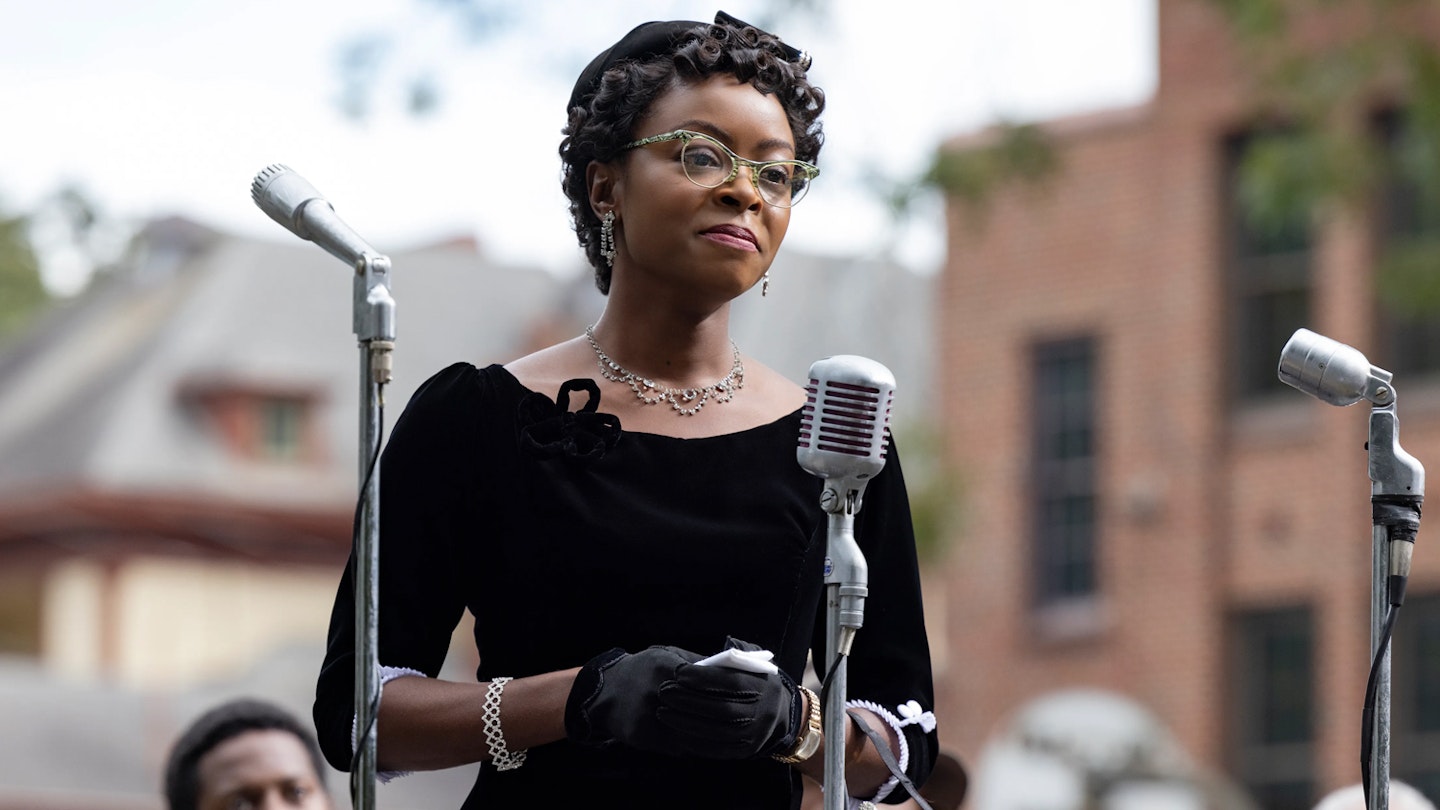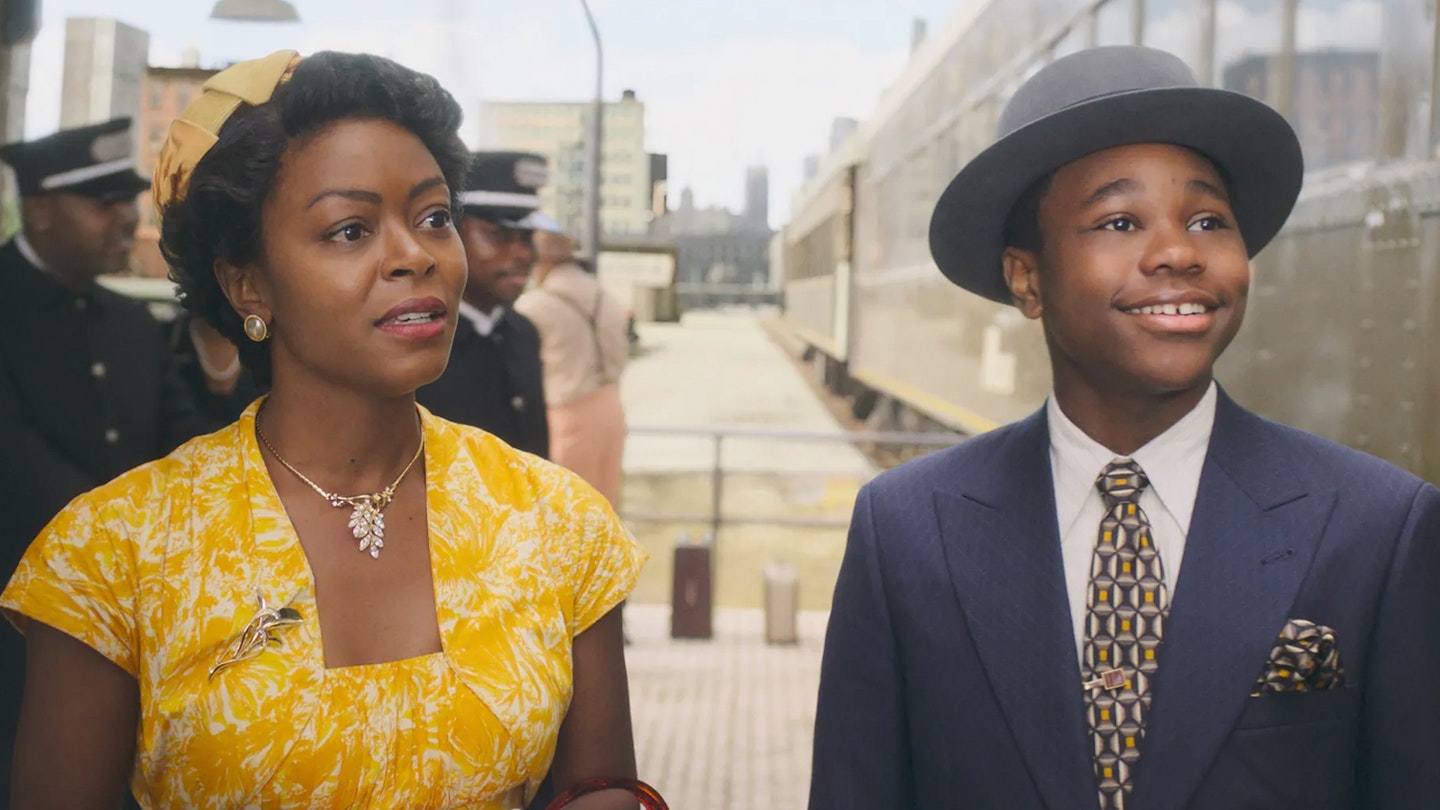On 28 August 1955 in Money, Mississippi, Emmett Louis Till, a 14-year-old African-American, was abducted, tortured and lynched for seemingly offending a white woman in a grocery store; his dead body, mutilated and unrecognisable, was discovered in the Tallahatchie river three days later. It is to the credit of filmmaker Chinonye Chukwu (Clemency) that Till has no truck with depicting and therefore sensationalising the heinous crime. Instead, Chukwu reframes the story through the prism of Emmett’s mother Mamie’s fight for justice. It’s a smart move, finding hope in a tragedy without cheapening it, while playing out the narrative on a bigger civil-rights canvas — one that provides a subtle but stunning showcase for Danielle Deadwyler in the lead role. Exemplifying the film’s less-is-so-much-more approach, the Harder They Fall actor elevates some pedestrian historical-drama writing into something compelling and touching in equal measure.

The film economically etches the sweet bond between mother and son, opening on a joyful car sing-along to the Moonglows’ doo-wop classic ‘Sincerely’. Emmett (a winning Jalyn Hall) is a bright spark, a born entertainer with an eye for a sharp suit and a knack for entertaining the family by singing along to commercials. This sense of showmanship worries Mamie as the boy prepares to travel (“Be small,” she says), reminding him different rules apply down South. As the film shifts locale to Mississippi (“A Good Place To Raise A Boy” reads a sign that might as well be dripping in irony), Chukwu paints a world where racism and inequality are deeply ingrained — Black passengers dutifully move to the rear of the train as it approaches the Mason-Dixon line — and the only person who doesn’t understand the rules is Emmett. A cheeky chat-up line and a wolf whistle at white shopkeeper Carolyn Bryant (Haley Bennett) is playful to him, but everyone around him knows the consequences. The subsequent lynching is relayed in one extreme long shot of a house, played out only through sounds of indistinguishable violence and piercing screams. It is all the more haunting for it.
The ability to bring history into the here-and-now by intertwining the personal and the political is one of the film's strong suits.
In a lot of ways, Chukwu doesn’t have to show the violence because Deadwyler conveys a world of hurt more deeply than prosthetics and a fight co-ordinator ever could. Whether it’s Mamie’s pained reaction to hearing the news of her son’s death (intensified by a slow, almost imperceptible dolly zoom) or her screams at seeing the wooden crate carrying Emmett’s body, Deadwyler delivers the biggest emotions without ever feeling histrionic. The film pivots on a deftly staged scene where Mamie insists on seeing her son’s corpse, the body obscured from the camera by a table. It’s only when Mamie asks for some time alone with her boy that the framing adjusts to reveal Emmett’s disfigured, unrecognisable body. It’s not just the camera that shifts. It’s also Mamie’s resolve to do right by her son.
It’s here that the film slips into its most compelling section, much of it built around Mamie’s determination to show the world what she has seen. So not only does she order an open casket for the funeral (“That smell is my son’s body reeking of racial hatred. Now I want America to bear witness”), she also invites a Black photographer to take pictures that do the ’50s equivalent of going viral. This is one of the film’s strong suits, the ability to bring history into the here-and-now by powerfully intertwining the personal and the political.
Aided by an effective, upfront score from Abel Korzeniowski, Chukwu’s filmmaking lacks flash and thunder, but is well crafted and cinematically intelligent. The last third becomes a courtroom drama, mostly played out on Deadwyler’s impassive face. It’s perhaps the film’s biggest boon that she can deliver more in a look than others can with reams of dialogue and, when it’s her time to take the stand, her quiet, dignified power lifts Till to a whole new level.

